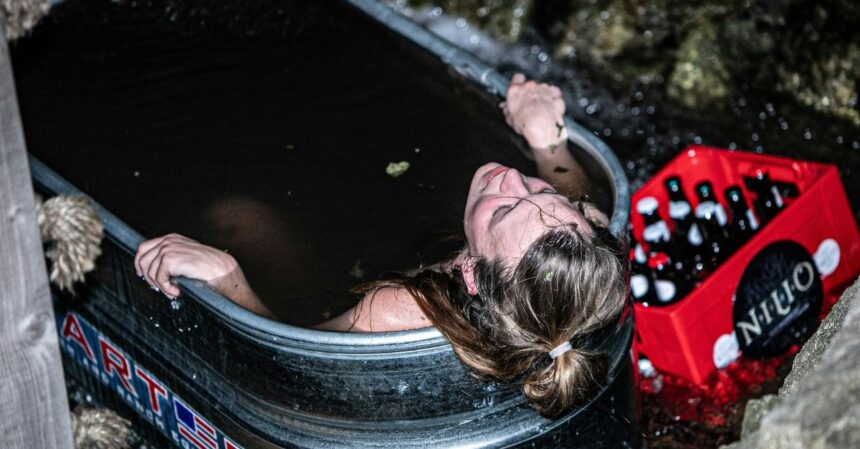Regular cold water immersion may enhance cellular resilience, potentially combating aging and disease.
That’s according to a study released March 28, 2025, by the University of Ottawa.
The study involved ten healthy young males who underwent daily one-hour immersions in 14°C (57.2°F) water over seven consecutive days. Blood samples collected before and after the acclimation period revealed significant cellular changes.
Initially, participants exhibited signs of cellular stress, including elevated markers of inflammation and apoptosis (programmed cell death). However, by the end of the week, these markers had decreased, and there was a notable increase in autophagic activity—the process by which cells remove and recycle damaged components.
Autophagy is crucial for maintaining cellular health and function, playing a key role in preventing the accumulation of damaged proteins and organelles that can lead to various diseases. The study’s findings suggest that repeated cold exposure may bolster this cellular “housekeeping” mechanism, enhancing the body’s ability to manage stress and potentially extending cellular longevity.
“By the end of the acclimation, we noted a marked improvement in the participants’ cellular cold tolerance,” said Kelli King, the study’s first author. “This suggests that cold acclimation may help the body effectively cope with extreme environmental conditions.”

